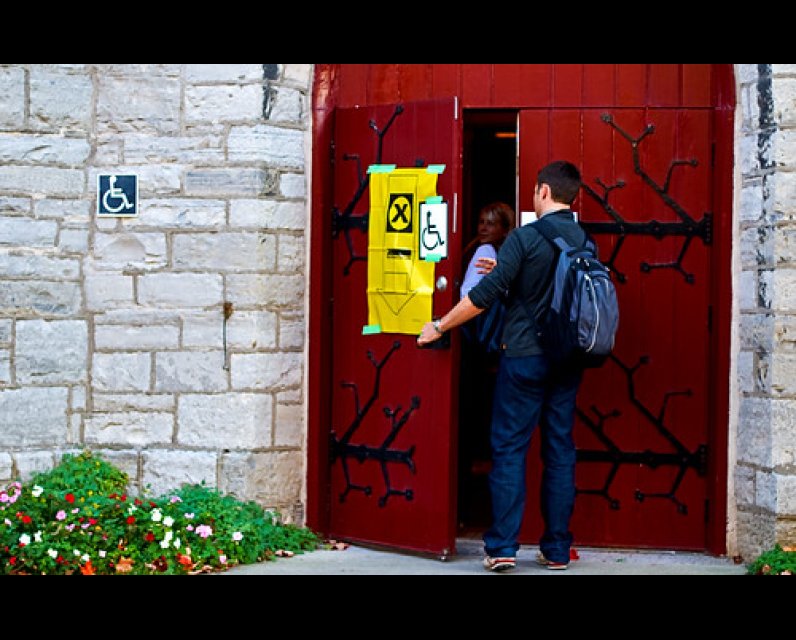Unpublished Opinions
Eva Schacherl is a writer with a life-long interest in health and environmental issues. She has decades of experience in management and communications, in both the federal government and non-profit organizations concerned with the environment, social justice, youth and mental health.
The Great Divide: How COVID measures will reshape politics

Canadians will be living with pandemic fallout for a long time to come. Not just in health care and the economy – in our social and political order.
In October, federal Employment Minister Carla Qualtrough said on CBC’s Power and Politics that she plans to bar unvaccinated people who are fired from receiving employment insurance. This is a continuation of the Trudeau government’s quest to drive a wedge between vaccinated and unvaccinated Canadians and create a two-tier society.
The predictable response to the pandemic by politicians has been to “do something” – but they should be careful what they do and who is the target. Almost 17% of Canadians 12 and over are not fully vaccinated. When we look at adults aged 18 to 49, it’s 20 per cent – 3.3 million people.
Divisive measures are risky. The Prime Minister saw his popularity take a nosedive during this fall’s federal election and scraped through with a minority and a smaller share of the popular vote. He justified the election call with the polarizing issue of vaccine mandates, and was met with angry demonstrations not usually seen in Canadian politics.
Voter disgruntlement hits both left and right. In Nova Scotia in August, a shift of only 3% of voters produced a surprise, resounding defeat of the Liberals. In Ontario, the incumbent Conservative Premier is at a low point in support, with a 54% disapproval rating and an election only seven months away.
Bedrock takes eons to form. In a much shorter time, it wears away, layer by layer. Trust is like that. Once it’s worn down, it won’t be rebuilt for a generation or more. That’s why some long-marginalized groups are so reluctant to trust public health directives.
All ten Canadian provinces have now adopted vaccine passports, and the federal government has imposed a sweeping mandate on 8% of the country’s full-time workers and on rail and air travellers.
For the first time in our history, citizens will need to show vaccine “papers” to travel by rail or air, as well as to enter some businesses, events and many colleges and universities. Schools are likely next. Even the vaccinated now have the daily irritant of passport checks.
Lockdowns and masks were defended as buying time against pandemic spread. But what is the justification for these new policies, such as workplace mandates applied even to home-based workers? Why is a negative COVID test suddenly not enough protection for travellers?
This has happened in the blink of an eye – and with no social consensus about two-tier citizenship, since 191,000 more voters chose the Conservatives than the Liberals in the recent election. Another 840,000 voters – 5% – chose the People’s Party, which loudly opposed vaccine mandates and passports.
Back on the front lines, over a million health care, transportation and government workers are on notice they will be fired (or put on leave without pay) unless they “choose” vaccination. More than 17,000 healthcare workers in Québec face suspension. Nurses, doctors and other terminated employees are joining new activist groups.
It’s unclear how an already stretched health care system and struggling airlines will function when they lose these workers. And governments will soon be caught up in legal challenges: one has already been launched against B.C.’s vaccine card.
So what is our outlook? A sizable minority of Canadians is losing trust in government measures. Their discontent is fuelled by direct attacks on their livelihoods and daily lives. We have a public service and health system weakened in numbers and talent. The public lacks any shared view of the facts, and there is no longer a widely shared media forum to debate them in.
Canadians have long looked south of the border and thought smugly that compared to the polarized US, we have a unified country. But policy decisions that divide-and-punish may change all that.
Resentment of the vaccine regime of passports, mandates and exclusion will be like a raging torrent that – while not very wide – will erode trust quickly, until we have a reshaped political landscape. One in five working adults are facing discrimination. They come from both the right and the left, and will be brought together by their shared sense of betrayal by the centre. Canada may never be the same.
Photo credit: Tyler Law, Creative Commons



Comments
Be the first to comment